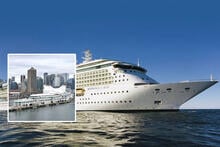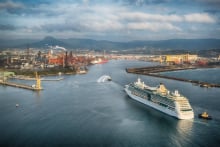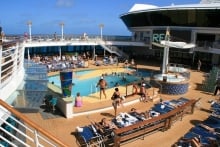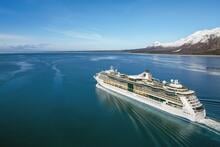Royal Caribbean's Radiance of the Seas has encountered a propulsion issue that has slowed the ship, and will now head to its final port of call.
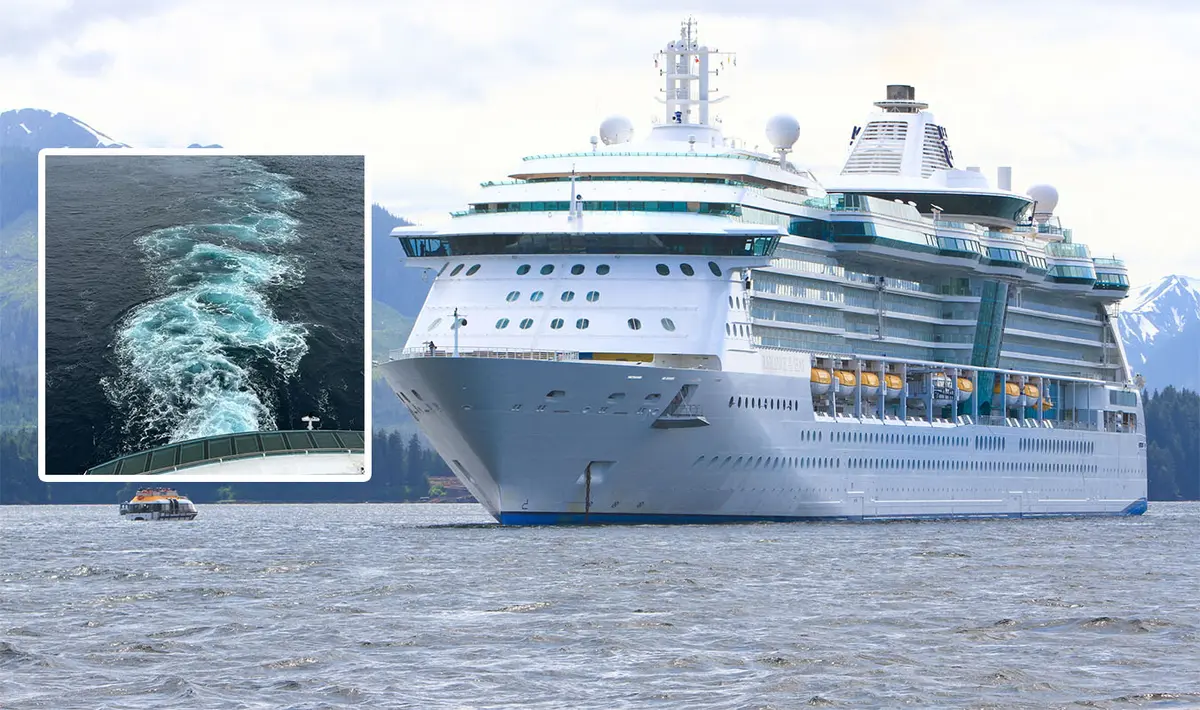
Guests onboard Radiance of the Seas were alerted by the ship's Captain of the issue, which occurred on Tuesday as the ship was sailing up the west coast of the United States.
Radiance of the Seas is sailing an open-jaw 4 Night Pacific Coastal Cruise to move the ship from Los Angeles to Vancouver and get the ship in position for her 2024 Alaska season. An open jaw cruise is one that begins and ends in a different port.
The Captain spoke to guests over the public address system to inform them of the issue, "Our teams have discovered that radiance of the seas is experiencing a technical issue with one of its propulsion systems, resulting in the ship being required to sail at a much slower speed."
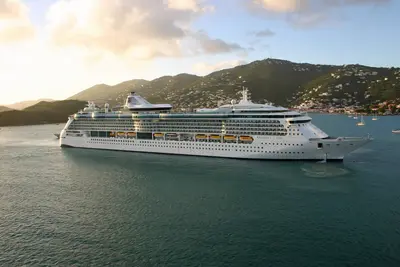
He emphasized the ship is still safe to operate, "Please know your safety and comfort, along with that of my crew are my top priorities and our ship remains seaworthy and safe. It's just slower."
He did not specify exactly what the propulsion issue is, or what happened to cause it.
Radiance of the Seas has two Azipods, which are multidirectional pods that drive the ship and can be rotated 360 degrees and are have been the standard form of propulsion for all of Royal Caribbean's new cruise ships in recent years.
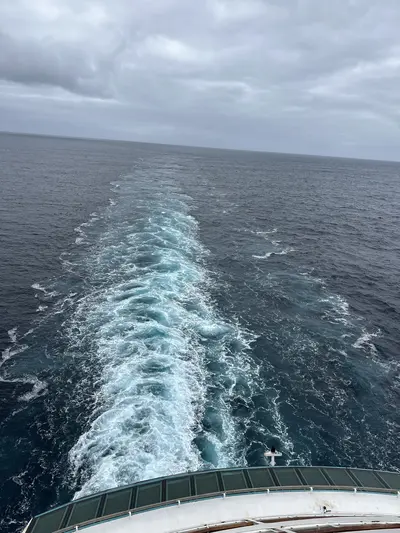
Guests could see only one Azipod is being used once the incident occurred.
As a result of the slower speed, Radiance of the Seas now needs to skip the rest of the ports on its itinerary and go straight to Vancouver, British Columbia, Canada.
According to the Captain, Radiance of the Seas will arrive there on Thursday, April 25th in the evening between 9 and 10 p.m. The ship can then be ready to disembark guests on April 26 as scheduled.
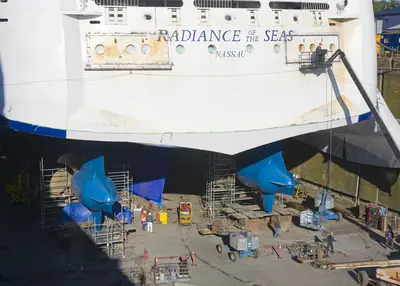
Radiance of the Seas is a 90,900 gross ton Radiance Class cruise ship. Her maiden voyage was in 2001.
Radiance is a smaller ship by today's standards, and has a capacity of 2,466 guests at double occupancy.
She is 962 feet long.
Compensation
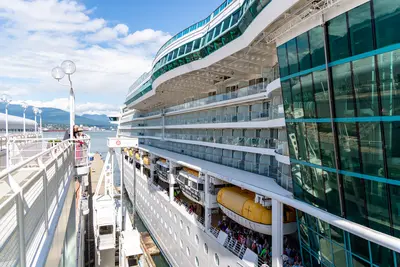
Letters were distributed to guests in their staterooms to confirm the changes.
As a result of the altered itinerary, guests can expect a partial refund for the disappointment. Royal Caribbean is not obligated to offer compensation for technical problems, but tends to do so as a gesture of goodwill.
Guests will receive 50% of their cruise fare paid back as an onboard credit.
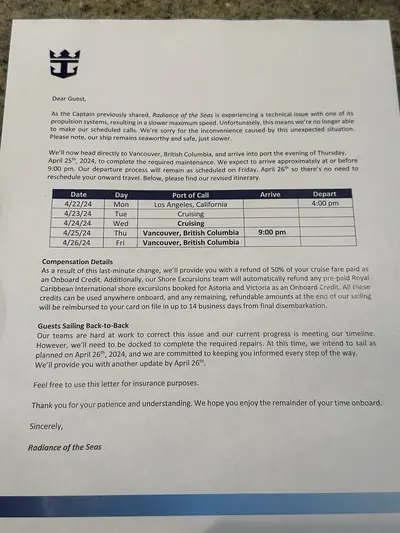
Any shore excursions purchased for ports that will be skipped will be refunded fully as an onboard credit.
The onboard credit can be used onboard the ship, and any unused credit will be refunded back to the credit card on file within 14 business days after the sailing concludes.
What about the next cruise?
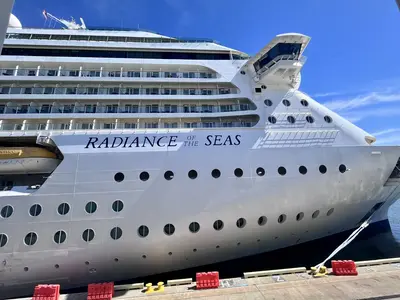
A propulsion issue on Radiance of the Seas is cause for concern for anyone with an upcoming sailing booked on her as to what impact it may have on it.
In the letter given to guests onboard Radiance, the ship's staff conveyed a message for back-to-back cruisers that are booked for the next sailing.
"Our teams are hard at work to correct this issue and our current progress is meeting our timeline. However, we'll need to be docked to complete the required repairs," the letter explained.
"At this time, we intend to sail as planned on April 26th, 2024, and we are committed to keeping you informed every step of the way."
"We'll provide you with another update by April 26th."
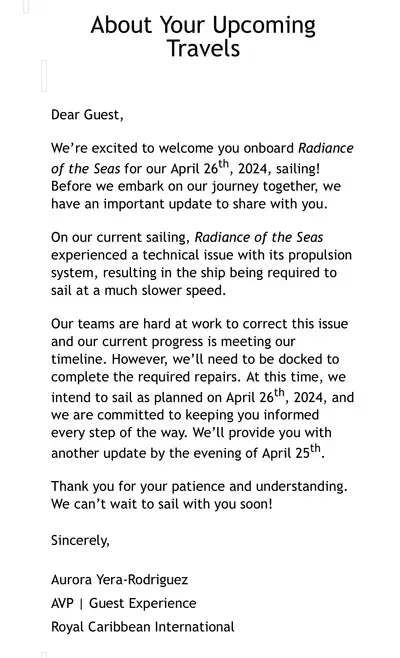
Guests booked on the April 26th sailing also received an email summarizing the same information mentioned previously in this article.
Recent propulsion problems for Radiance
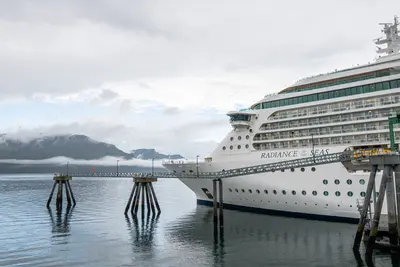
Radiance of the Seas has had some bad luck lately with its propulsion system.
Last year, Radiance encountered a propulsion issue during her Alaska season that cancelled a few cruises at the last-minute.
Two cruises were cancelled before Radiance could resume sailings.
Cruise ships have redundant engines for this situation
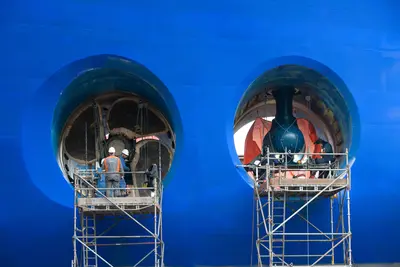
As the Captain of Radiance of the Seas explained, propulsion issues like this are not unheard of and the ship is quite safe to sail on.
Cruise ships can sail with less than both engines running. In fact, it's common not to have all engines going at once in order to conserve wear and tear.
When a situation like this occurs, the ship can still operate at a reduced speed safely.
Historically, ships with propulsion problems have been able to sail and either make repairs along the way, or hold off until a scheduled upcoming dry dock. The incident with Radiance last year having to cancel a couple of cruises was certainly an outlier.



